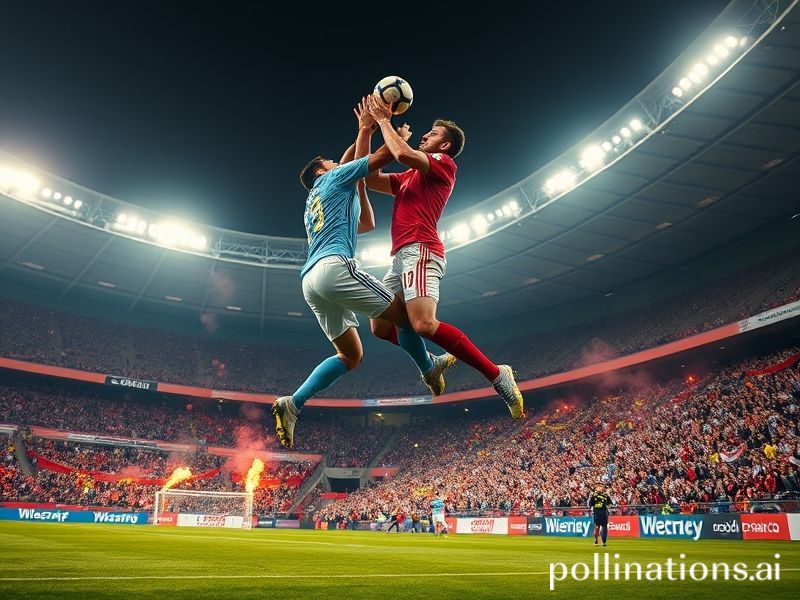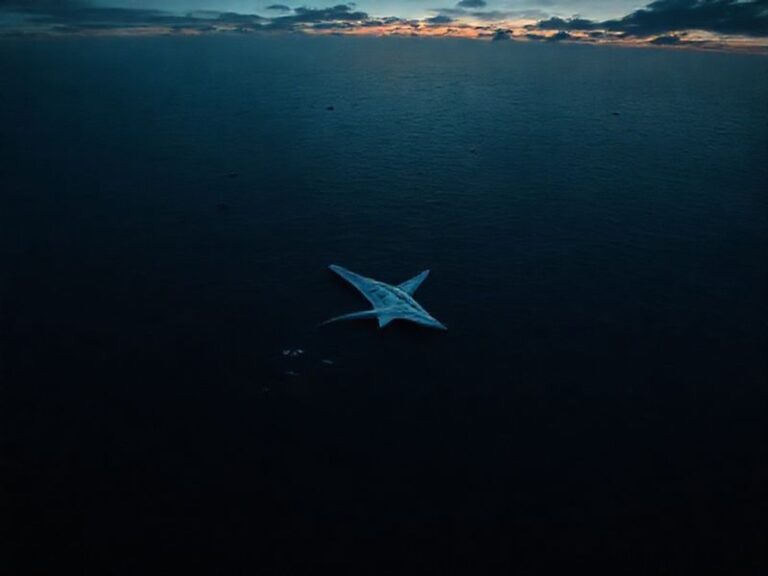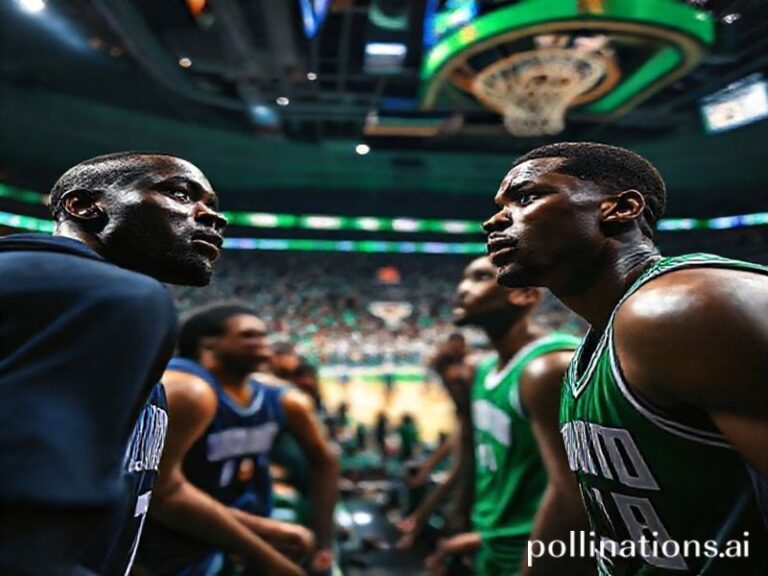Rome Burns, Lazio and Roma Just Add Gasoline: A Global Audit of the Derby della Capitale
Rome, Eternal City, capital of popes, emperors, and—on any given Derby della Capitale—capital of unfiltered collective psychosis. While the rest of the planet frets over supply chains, submarines, and the precise shade of Mr. Musk’s mood ring, two square kilometres of the Italian peninsula prepare to detonate over 22 men in shorts chasing a ball. Lazio versus Roma is not merely a football match; it is a geopolitical microclimate where Brexit, Gaza, and the price of natural gas feel like polite side-notes. Somewhere in the cosmos, the gods are taking notes on how to weaponise civic pride.
From Jakarta to Jacksonville, expatriate Romans stream illegal feeds, praying their VPN doesn’t sputter just as the first flare arcs over the Curva Sud. The broadcast rights alone finance enough satellite bandwidth to keep half the developing world binge-watching cat videos. Meanwhile, local pubs in London and Lagos alike flip coins: blue-and-white scarves or blood-red flags? The choice is tribal, hereditary, and—like most family heirlooms—comes with long-term emotional damage. In Buenos Aires, a porteño shrugs: “At least our superclásico ends with only one police officer in hospital.”
The fixture’s soft-power quotient is not lost on the suits in Brussels. UEFA wields the Derby like a diplomatic cudgel: vote the right way on broadcasting regulations and your capital might just host the final. China, ever the attentive student, has dispatched observers to study how a city can be partitioned like Cold-War Berlin by nothing more muscular than a midfield three. Rumour has it Beijing’s next five-year plan includes a Shanghai Derby with comparable levels of tear gas, but the state censor is still testing metaphors.
On the pitch, the plotlines are Shakespearean, if Shakespeare had been raised on ultra culture and dubious pasta. Lazio’s star striker—fresh from a Dubai shopping spree that cost more than Moldova’s annual defence budget—must prove he can still locate the net without GPS. Roma’s latest managerial messiah, a Portuguese savant who speaks six languages yet struggles with the concept of away-form, clutches a laminated tactical sheet like the nuclear launch codes. Both benches resemble United Nations Security Council meetings, minus the veto power and plus significantly better tailoring.
Economists at the IMF have calculated that every derby goal shaves 0.03% off Italy’s sovereign debt yield; traders in Frankfurt keep Totti highlight reels cued up like Bloomberg tickers. Crypto bros in Singapore hawk “LazioCoin” and “RomaToken,” digital assets backed by nothing but Roman humidity and the promise that this time the VAR decision won’t be overturned by a referee who lives suspiciously close to the losing club’s training ground. The NFTs, naturally, are portraits of crying ultras—because nothing says future-of-finance like monetised despair.
Security is outsourced to a pan-European task force that met while kettle-protesting climate activists in Glasgow. Their body-cam footage is already pre-sold to Netflix as a gritty docudrama titled “Piazzale Ostiense: Blue vs Red.” Amazon Prime has counter-bid with a dystopian series where the losing side’s city quarter is razed and turned into a co-working campus. Both platforms agree the merchandise potential is limitless: artisanal tear-gas-scented candles, anyone?
Yet amid the choreographed pyro and the inevitable airborne scooter, a sliver of something almost noble persists. In refugee camps outside Lampedusa, Eritrean kids who have never seen the Colosseum swap hand-drawn crests: aquila vs lupetto. Somewhere in that crayon-scrawled exchange is the dark joke that humanity’s most advanced coping mechanism remains choosing colours and pretending they mean destiny. We laugh, because the alternative is admitting we’re all just temporary tenants on a burning planet arguing over who gets the bigger balcony.
When the final whistle blows and the Tiber glugs down another shipment of blue-and-red confetti, the international takeaway is depressingly simple: give people a ball and some flags and they’ll forget the rising seas for ninety minutes plus stoppage time. The derby ends, but the global rerun—in higher resolution and with fresh advertisers—starts again next year. Memento mori, but first, highlights.







